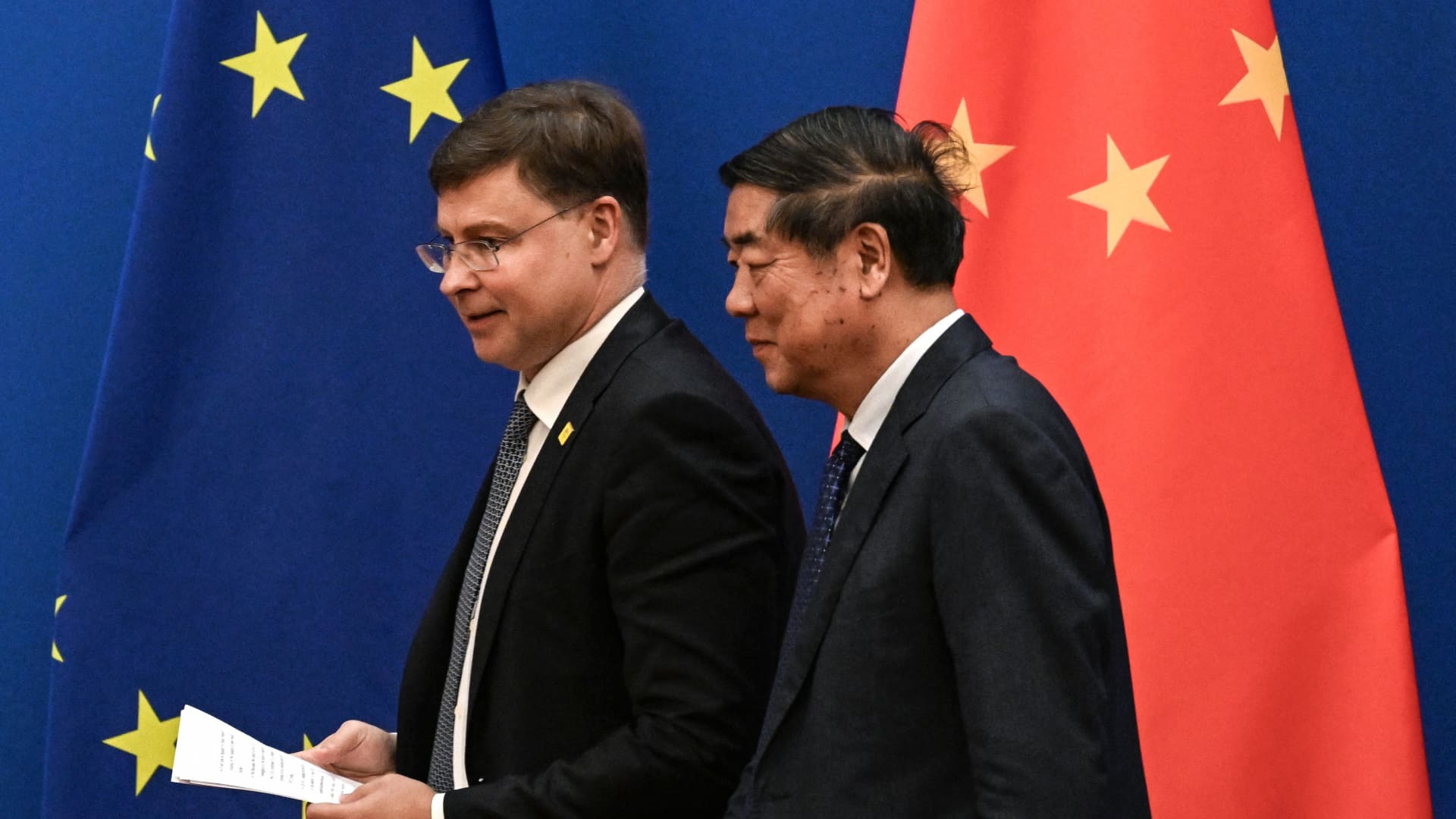- China currently dominates the electric vehicle, battery, and critical metals industries.
- However, other countries, such as Australia, India, and the US, have started pushing back against Chinese investment in these industries.
- There is suspicion and concern about Chinese EV companies in countries like France, which is calling for an investigation into unfair subsidies by the Chinese government.
- This could potentially lead to new tariffs on Chinese EV imports to the EU.
- China's recent actions, such as threatening to curb exports of important materials and banning coal imports from Australia, have further fueled concerns about dependence on China.
China's share of the European electric car market has more than doubled in less than two years, with the UK being the largest market for Chinese electric car brands, as new battery electric technology and lower prices have boosted sales and wiped away concerns about lower-quality cars, posing an "imminent risk" to the European industry, according to industry experts.
Chinese electric vehicle companies are posing a significant threat to the European car industry, as evidenced by the increasing number of Chinese exhibitors at the IAA Mobility Conference in Munich, reflecting their ambitions to conquer the European market.
China's automobile and component exports have doubled in 2021, leading to an investigation by the European Commission into subsidies given to Chinese electric vehicle makers, as European automakers express concern over competition from China in the growing electric vehicle sector.
Tesla is expected to benefit from European protectionist measures as regulators crack down on Chinese electric vehicle (EV) competition, causing stocks of Chinese EV companies like NIO and XPeng to plunge.
The European Union is investigating China's state support for electric vehicle makers due to concerns about the impact on European auto manufacturers, with Chinese companies already gaining a substantial market share in Europe through cheaper prices and subsidies.
China accuses the European Union of "blatant protectionism" following an "anti-subsidy" investigation into China's electric vehicle makers, posing a threat to China-EU trade relations and potentially leading to tariffs on Chinese EVs.
The European Union's increasing scrutiny of Chinese electric-vehicle companies has caused tension between the two, impacting the EV space and EU-China relations.
China and the European Union held talks on artificial intelligence and cross-border data flows, despite tensions over the EU's probe into China's electric vehicle subsidies.
German carmakers are concerned about potential retaliation if the EU imposes duties on Chinese electric vehicles, according to German Economy Minister Robert Habeck, who also acknowledged a Franco-German divide over the anti-subsidy probe.
The European Automobile Manufacturers’ Association is urging the EU to scrap plans for 10% tariffs on electric vehicle manufacturers who do not source all their parts from within the bloc and Britain, warning that this could result in a £3.7bn cost and drive up consumer prices.
China's commerce minister expressed dissatisfaction with the European Union's decision to launch an anti-subsidy investigation on China's electric vehicles, calling it a protectionist act that will affect China-EU green cooperation and the global automotive industry.
European regulators are investigating subsidies given to Chinese automakers that may be affecting European companies, including Tesla, but investors do not appear concerned.
European Union's ongoing subsidy investigation on China may include non-Chinese brands of electric cars, such as Tesla and BMW, due to evidence of significant distortions in the European market caused by cheaper offerings from Chinese-made products.
The European Union is reportedly planning to announce anti-subsidy investigations against Chinese steelmakers at a summit with the U.S., in an effort to shield industries from cheap competition and avoid the re-imposition of Trump-era tariffs on EU steel.
The European Union is reportedly planning to launch anti-subsidy investigations into Chinese steelmakers at a summit with the US, as part of efforts to protect industries from cheap competition.
Chinese automakers, such as BYD, are making a push into the European market with their low-cost electric vehicles, offering an attractive option for European consumers seeking affordable electric cars, but also posing a threat to Europe's traditional automakers who underestimated the electric revolution.
